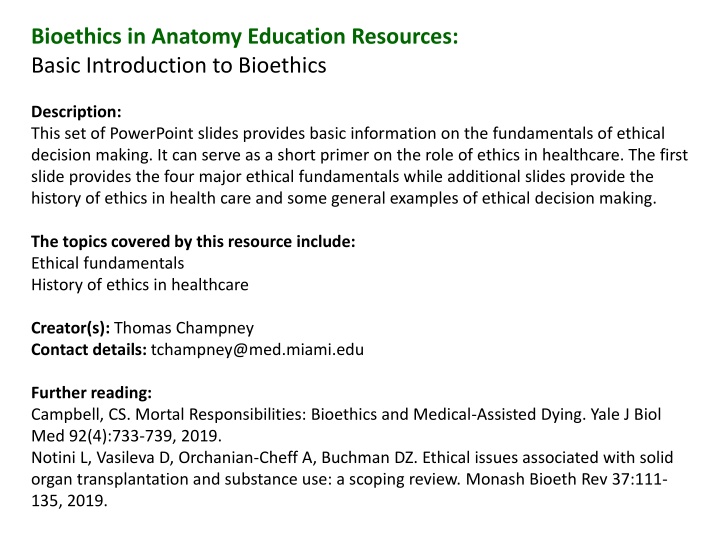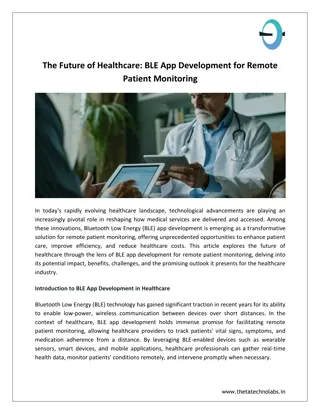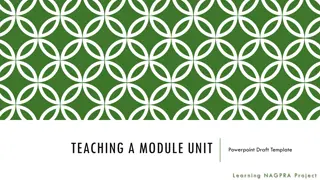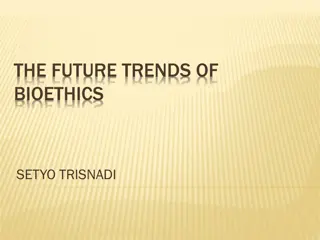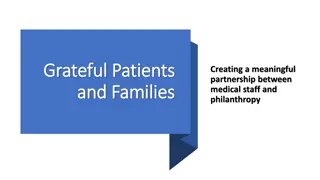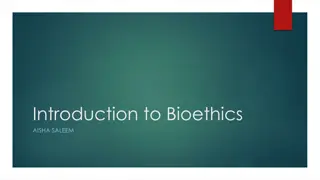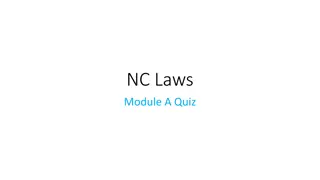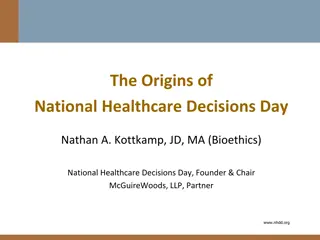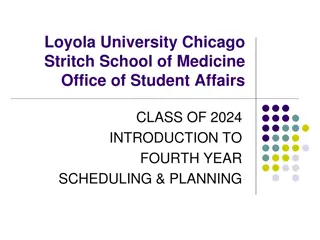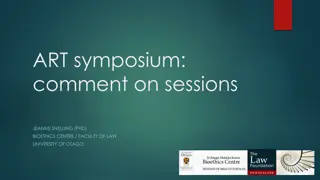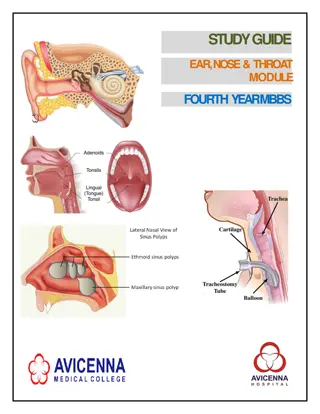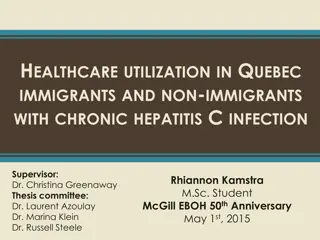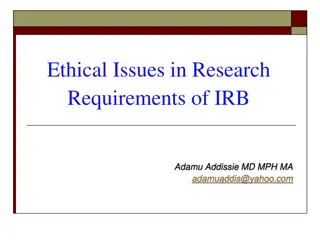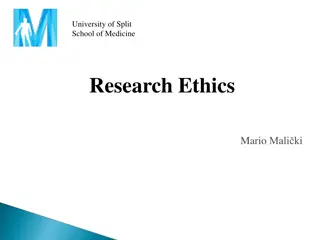Fundamentals of Bioethics in Healthcare
Explore the ethical foundations crucial in healthcare decision-making through this resource. Uncover the history of ethics in healthcare, understand the four bioethical pillars, and delve into examples of ethical decision-making scenarios. From autonomy to justice, grasp the complexities and significance of ethical considerations in the medical field.
Download Presentation

Please find below an Image/Link to download the presentation.
The content on the website is provided AS IS for your information and personal use only. It may not be sold, licensed, or shared on other websites without obtaining consent from the author.If you encounter any issues during the download, it is possible that the publisher has removed the file from their server.
You are allowed to download the files provided on this website for personal or commercial use, subject to the condition that they are used lawfully. All files are the property of their respective owners.
The content on the website is provided AS IS for your information and personal use only. It may not be sold, licensed, or shared on other websites without obtaining consent from the author.
E N D
Presentation Transcript
Bioethics in Anatomy Education Resources: Basic Introduction to Bioethics Description: This set of PowerPoint slides provides basic information on the fundamentals of ethical decision making. It can serve as a short primer on the role of ethics in healthcare. The first slide provides the four major ethical fundamentals while additional slides provide the history of ethics in health care and some general examples of ethical decision making. The topics covered by this resource include: Ethical fundamentals History of ethics in healthcare Creator(s): Thomas Champney Contact details: tchampney@med.miami.edu Further reading: Campbell, CS. Mortal Responsibilities: Bioethics and Medical-Assisted Dying. Yale J Biol Med 92(4):733-739, 2019. Notini L, Vasileva D, Orchanian-Cheff A, Buchman DZ. Ethical issues associated with solid organ transplantation and substance use: a scoping review. Monash Bioeth Rev 37:111- 135, 2019.
Bioethical Fundamentals There are four pillars of bioethical decision making in healthcare. These are: 1. Autonomy the ability to make your own decisions. The patient has the right to determine what can or cannot happen during treatment by making an informed, uncoerced decision (consent). 2. Beneficence an act of charity or kindness. A healthcare professional must act for the benefit of the patient with no other motives. 3. Nonmaleficence do no harm . A healthcare professional must not harm the patient. 4. Justice providing fairness in healthcare decisions. A healthcare professional must treat all individuals equally with an equitable distribution of resources. https://www.themedicportal.com/blog/medical-ethics-explained-justice/ https://vtethicsnetwork.org/medical-ethics
Short History of Ethics in Healthcare Since the era of Hippocrates (460 370 BC), the proper, ethical treatment of patients by healthcare providers has been emphasized. The hippocratic oath and other more modern versions have all stated how to appropriately treat patients. More recently, four pillars of bioethical decision making in healthcare have been developed: autonomy, beneficence, nonmaleficence and justice. Each of these must be taken into consideration when treating patients. Most hospitals have ethics review boards that use these pillars to determine the proper and appropriate treatments for patients in difficult and ethically challenging situations. These boards provide guidance to healthcare providers, the patients and their families facing these unique circumstances. https://medschool.ucla.edu/body.cfm?id=1158&action=detail&ref=1056 https://vtethicsnetwork.org/medical-ethics https://www.ama-assn.org/delivering-care/ethics/ethics-committees-health-care-institutions
Example of Ethical Decision Making in Healthcare One example of ethical decision making in healthcare is managing the inadequate supply of donor organs that are needed for transplant. Societies that develop the guidelines for the use of donor organs must take into consideration all four pillars of bioethical decision making. Some societies decide on an optin response which requires all donors to specifically choose to donate their organs while other societies decide on an opt out response which states that the organs of the deceased will be available for transplant unless the donor specifically opts out. Notice how these two responses provide more weight to autonomy ( optin ) versus beneficence and justice ( optout ). These are bioethical decisions that must be discussed and agreed upon by all those involved in the process. https://archive.hshsl.umaryland.edu/bitstream/handle/10713/6488/Tarzian%20Talk%20110116.pdf https://catholicmoraltheology.com/on-the-ethics-of-organ-transplantation-a-catholic-perspective-part-i/
